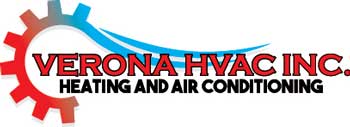Completing the search for your first home is an exhilarating experience. You’re likely trying to keep track of numerous details about making the right choice. We believe that understanding your future HVAC system is crucial. The property’s HVAC system represents a substantial investment and potential source of long-term costs, which is why due diligence is important for first-time homebuyers.
In the following guide, we’ll outline seven tips for discovering all there is to know about a home’s heating and cooling system. And if you want a deeper opinion from the pros, consider calling Verona HVAC. Our staff can weigh in on your options with industry insights you won’t find elsewhere.
1. What HVAC System Are You Working With?
Start by identifying what specific HVAC system the home includes. Furnaces tend to last longer than air conditioners, and some of the latest types of HVAC products like heat pumps boast average life spans longer than ever. Getting the details on the make and specific model provides a much better sense of how much routine maintenance it might need.
2. What Is the Current System’s Age?
Another good idea is to find out how old the HVAC system is when you’re considering a potential new home. In general, HVAC systems should survive for around 10-12 years. Knowing when it was installed helps you prepare for any needed servicing or when it might break down. Older systems may be more vulnerable to problems, so planning ahead of time for a replacement unit might be needed faster than expected.
3. Is the Warranty Still in Effect?
Be sure to check the HVAC system is covered by a warranty. If it is, that’s great news because it can lighten the load for maintenance costs. HVAC warranties typically include parts and labor, but the details in each policy will vary. Don’t forget to look into any terms that seem confusing to ensure you understand your coverage and potential out-of-pocket costs.
4. Does the System Have a Documented Maintenance History?
Don’t forget to check the maintenance history of the HVAC system, if the records are accessible. This service history can reveal if there have been regular problems or how often maintenance is performed. Inquire about key tasks such as changing the air filter, which can indicate it received regularly scheduled tune-ups.
5. What Are the Energy Efficiency Ratings?
Finding a home that features an HVAC system with high energy efficiency means more manageable utility bills and less of an impact on the environment. Locate the seasonal energy efficiency ratio (SEER) ratings for air conditioning along with the annual fuel utilization efficiency (AFUE) for furnaces. Higher SEER ratings mean better cooling across the entire season, while higher AFUE ratings illustrate that the fuel is efficiently converted into useable heat.
6. Did You See Any Problems After Completing an Informal Inspection?
Even without heating and cooling expertise, you can still take a moment to inspect the HVAC system on your own. Watch closely for any concerning items that haven’t been mentioned by the seller. This might consist of odd sounds, stubborn patches of the house that are too hot or cold and attempts to hide any serious damage.
7. Have You Asked Your Local HVAC Professional?
If you’re not quite sure about the current state of the HVAC system, it’s never a bad idea to get an assessment and recommendation from certified HVAC professionals. They will be much more likely to catch things you might miss, such as leaking coolant, bad electrical connections or inefficient ductwork.
A Chat with Verona HVAC Helps Take the Stress Out of Your Home-Buying Journey
Selecting your first home should be thrilling, and Verona HVAC can ensure it stays that way. Reach out with us at 661-449-9765. We can talk about how our HVAC services ease your mind, giving you what you need to dive into home-ownership with confidence.
